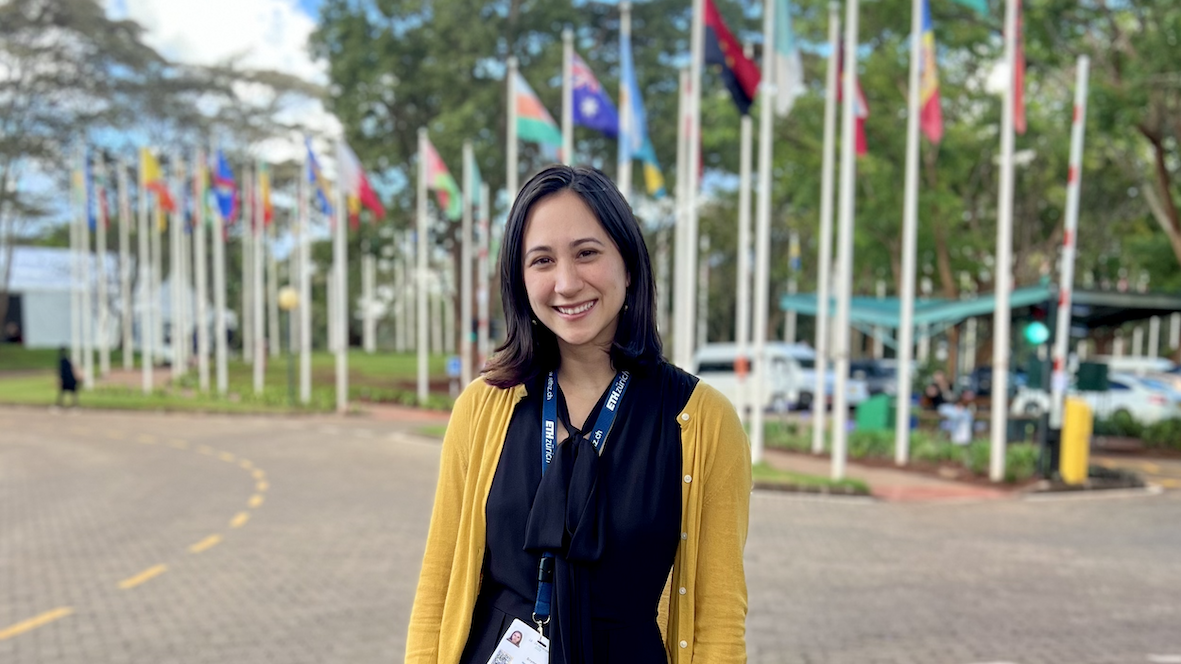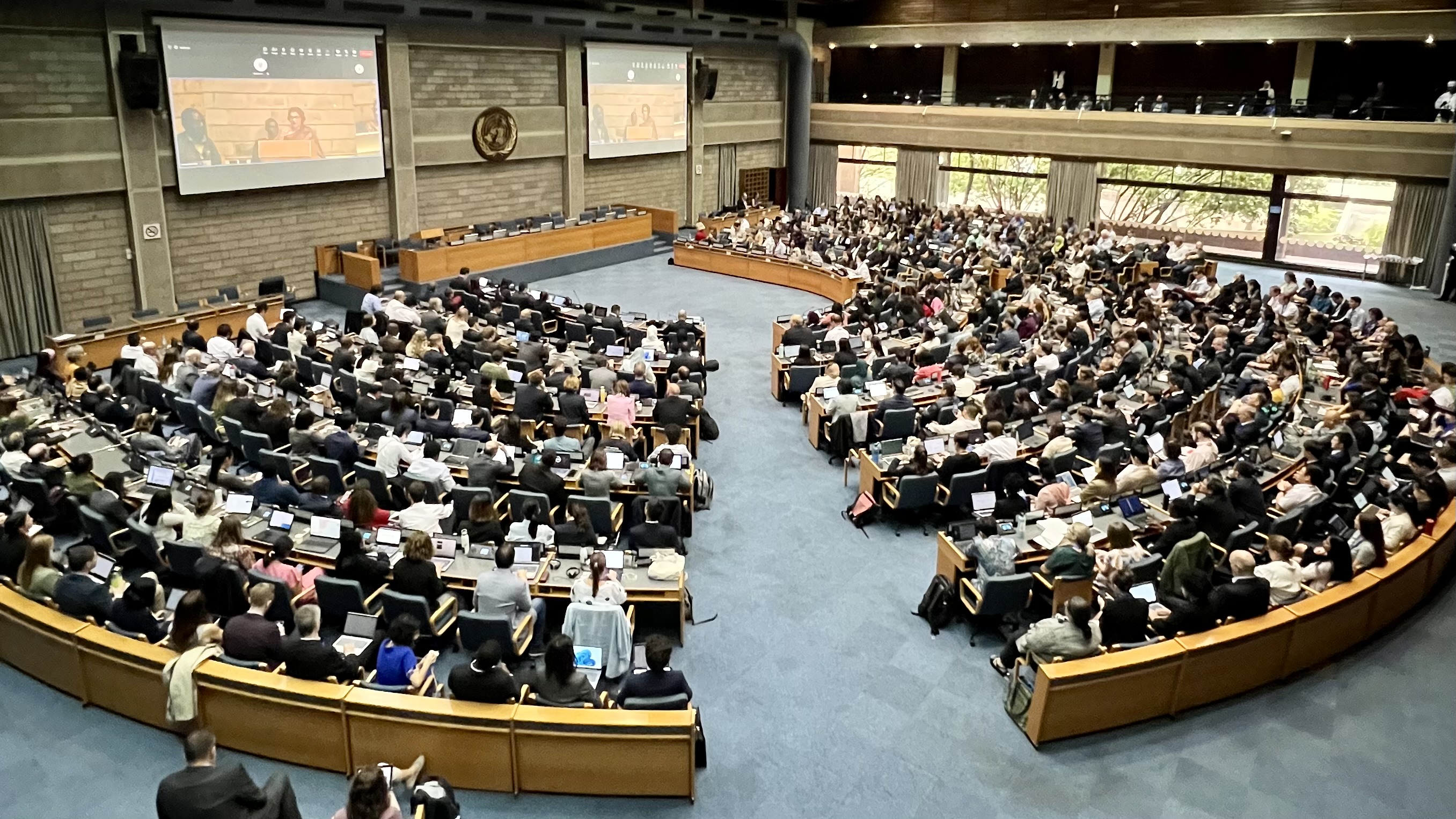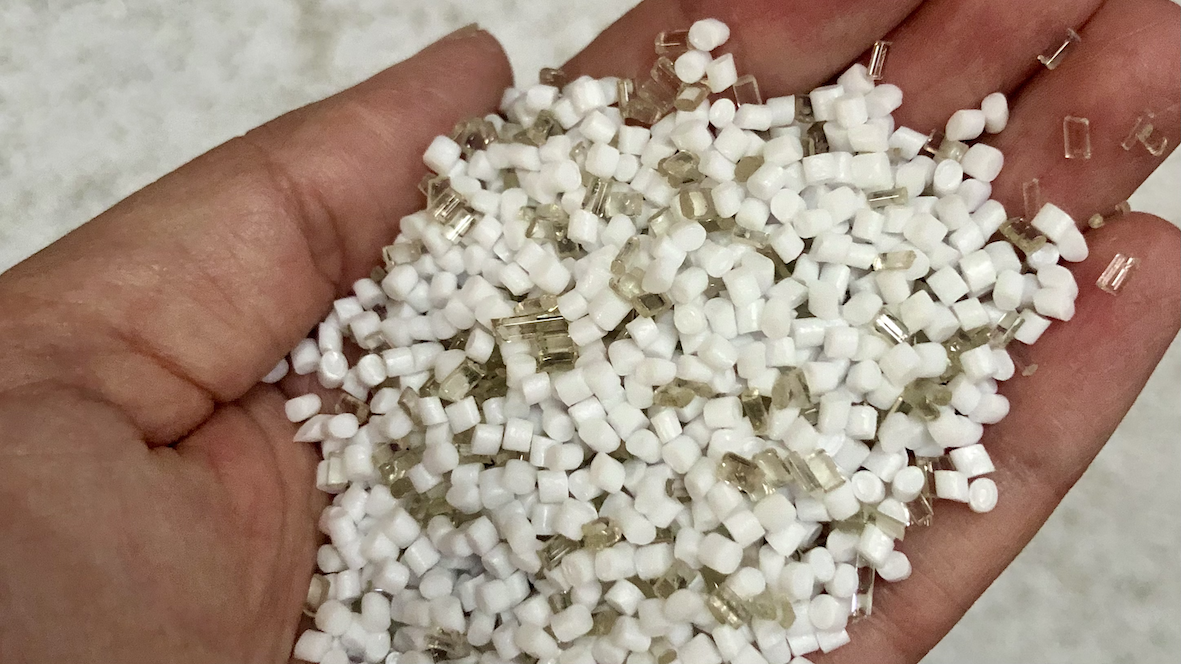Blog: The Elephants in the Room at the Negotiations for the Global Plastics Treaty
After participating in the third session of the negotiations for the Global Plastics Treaty, Lin Boynton shares the complex dynamics of these negotiations and the broader plastic crisis. From the limitations of recycling to the disproportionate impact on low- and middle-income countries, she uncovers critical aspects largely ignored during the negotiations, urging scientists to speak up during this pivotal process.

The Spirit of Nairobi
In the face of a global plastic crisis, 175 nations convened at the United Nations Environment Assembly (UNEA-5.2) last year in Nairobi, resolving to develop a Global Plastics Treaty. As a PhD student researching plastic recycling in Malawi, I was inspired by the potential of an internationally binding instrument to combat plastic pollution.
The "Spirit of Nairobi" was palpable during the third session of the external page Intergovernmental Negotiating Committee (INC-3) last month. However, optimism soon turned to frustration as oil-producing countries stalled progress over the weeklong negotiations. Here I discuss a few major topics that were largely ignored in the negotiations, but critical to an effective treaty.

The Elephants in the Room:
A fossil-fueled process
external page An analysis revealed a conservative estimate of 143 oil and chemical industry lobbyists registered for INC-3, some even on country delegations. Petrochemicals like plastics are a external page high growth market and the oil industry is invested in maintaining this demand and preventing more regulation. Despite most countries supporting a treaty addressing the full lifecycle of plastics, oil-producing countries are pushing for a more limited scope that could essentially reduce it to more of a recycling treaty.
We can’t recycle our way out of the plastic crisis
Unfortunately, recycling simply isn’t enough to solve the plastic problem. While recycling will play a role, it has not proven to be external page the win-win-win solution for business, society, and the environment that it is often claimed to be. external page A recent study found that carbon emissions estimates for the plastic production process are likely twice as high as previously thought because part of the process is often outsourced to low- and middle-income countries (LMICs) reliant on coal. Additionally, there is a external page mismatch between supply (low-quality mixed-colored plastic) and demand (high-quality clear or light-colored PET and HDPE) for recycled plastic. Increasing collection rates of plastic waste will translate to only external page limited replacement of virgin plastic, unless circular product design and markets for recycled plastic are promoted.

Lobbying for good
The discussions highlighted the disproportionate impact of plastic pollution on countries and populations with limited resources to tackle the crisis. A external page recent publication from the OECD showed that approximately 2 billion of development finance was dedicated to curb plastic pollution in 2020. In the same year, there was almost 40 billion from external page private investment in plastic circularity, 89% of which went to North America and Europe. In addition, the lack of data from LMICs is also a significant barrier to informed decision-making and action. Conducting external page pilot initiatives in LMICs and transparently sharing both successful and unsuccessful aspects can help bridge this data gap and help prevent repeating failures.
One of the successes of the INC process has been organizations such as external page WIEGO and external page IAWP lobbying for a just transition for the waste pickers who are responsible for external page over half of all plastic collected globally. As scientists, I think we can learn from their uncompromising resolve to be heard during the INC process. With a commitment to science-based evidence, we can expose the elephants in the room and external page lobby for good during the next two INC sessions.